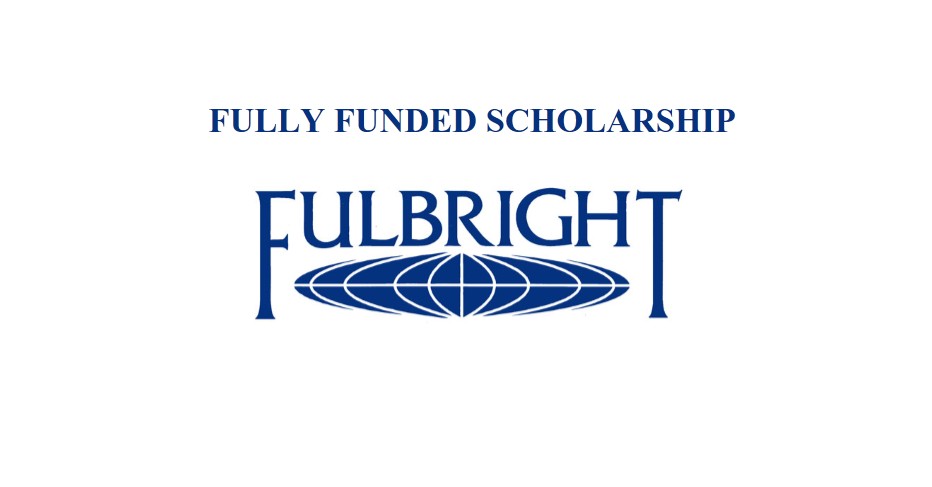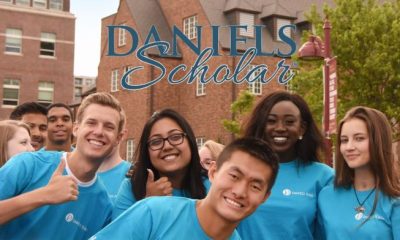Career Tips
Applying For Fulbright Scholarships In 2024 | Complete Guide

The Fulbright program provides life-changing opportunities to study, research, and teach English abroad. Winning one of these prestigious awards can lead to a multitude of new opportunities and help launch your career. However, the application process is notoriously complex, with strict deadlines and eligibility requirements.
Do not worry, we have you covered. Over the next few minutes, we’ll walk you through everything you need to know to submit a successful Fulbright application for the 2024 cycle and realize your international dreams. This is the ultimate guide for navigating the Fulbright application in a few simple steps. By the end, you’ll be on your way to packing your bags for an unforgettable journey. Let’s get into it!
The Fulbright Program provides a variety of scholarships for US citizens to travel abroad and for non-US citizens to visit the United States. Grantees create their own programs and have the opportunity to observe and consult with colleagues in their respective fields. Fulbright provides opportunities in a variety of fields of study, including science, business, and the arts.
The most widely known Fulbright opportunities are:
- Fulbright Study/Research Grants for U.S. Citizens: Provides funding for graduate students, young professionals, and artists to conduct research or pursue graduate study abroad for 6 to 12 months.
- Fulbright Foreign Student Program: Enables graduate students, young professionals, and artists from abroad to conduct research or study in the U.S. for 6 months to 2 years.
- Fulbright Scholar Program: Funds faculty, administrators, and professionals to lecture, conduct research, or participate in seminars abroad for 3 to 12 months.
The application process begins 16 to 18 months before the start of the grant. Applicants must submit strong applications that include a clear statement of proposed activity, a personal statement, a curriculum vitae or resume, a project statement, letters of recommendation, a bibliography, a tentative itinerary, language proficiency information, and any additional materials requested by the host country.
The Fulbright Program offers an unparalleled opportunity to foster long-term connections and mutual understanding between people in the United States and other countries. If you’re ready for an adventure that will both challenge and transform you, begin preparing your application today. A Fulbright experience can lead to life-changing opportunities.
Eligibility Requirements:
To be eligible for Fulbright scholarships, you must meet program-specific requirements. Fulbright wishes to assist students and professionals who will positively contribute to mutual understanding between citizens of the United States and other countries:
1. Citizenship
Most Fulbright scholarships require you to be a citizen of the United States to apply. Some programs also welcome permanent residents. If you have dual citizenship in the United States and another country, you are still eligible, but you must specify which country you wish to represent in your application.
2. Education
Most Fulbright programs require at least a bachelor’s degree before beginning the scholarship. Some scholarships require admission to a graduate program or higher. Your academic credentials and performance to date will be considered as part of the application.
3. Language Skills
Many Fulbright scholarships require or prefer that applicants know a foreign language. The level of proficiency varies by program and country. Strong language skills will demonstrate your ability to fully integrate into the culture and complete your proposed project or research. You may be required to provide proof of proficiency through language evaluation.
4. Experience
Relevant experience in your field or area of study is usually required or preferred for Fulbright applicants. Experience living or studying abroad, particularly in your destination country, is also valuable. Your experience will demonstrate how qualified you are for the Fulbright opportunity. Letters of recommendation from people who can attest to your relevant experience are essential.
5. Project Proposal
You must submit a clear project proposal that aligns with the scope and goals of the Fulbright program to which you are applying. Your proposal should be compelling, well-researched, and feasible to complete during the scholarship period. It should demonstrate how you intend to positively contribute to the host community.
Meeting these basic eligibility requirements is essential for becoming a competitive applicant for Fulbright scholarships. Don’t be discouraged if you don’t meet all of the requirements; if you have a strong profile and proposal, apply anyway, as exceptions are sometimes made. With diligent preparation, you have a great chance of becoming a Fulbright scholar.
Application Process
The Fulbright application process may seem daunting, but by breaking it down into manageable steps, you can craft a competitive application. Here’s the process step-by-step:
1. Choose a Fulbright grant opportunity
The first step is to look through the opportunities on the Fulbright website and choose one that matches your background and goals. Consider your field of study, level of study (graduate or postgraduate), type of activity (research, English teaching), and preferred host country. Discuss your options with a Fulbright Program Advisor.
2. Meet with a Fulbright Program Advisor
Schedule a meeting with an advisor at your university to discuss your selected opportunity and application strategy. They can help ensure you understand the program requirements and have a strong application plan.
3. Build your application
Prepare the required application materials, including a statement of purpose, personal statement, curriculum vitae or resume, three references, and official transcripts. Your statements should be compelling and demonstrate why you are an excellent candidate for the award. Request enthusiastic references from your recommenders that highlight your relevant experience, skills, and success potential.
4. Complete the application
The application includes forms to provide background information and upload your materials. Double check that all parts are complete and comply with the instructions before submitting.
5. Interview
If selected for an interview, prepare to discuss your application in more detail. Practice your responses to potential questions about your experience, goals, and how you will fulfill the program objectives. Interviews are typically conducted by a panel at your university.
6. Selection and next steps
The Fulbright Foreign Scholarship Board makes the final decisions on candidate selection. If you are selected as a semi-finalist or finalist, collaborate closely with your Program Advisor to make any necessary changes to your application. Successful candidates will receive the Fulbright award and collaborate with Fulbright and host institutions to plan their grant term.
The key to a successful application is to begin early, pay close attention to details, and persevere through the multi-stage procedure. You can join the prestigious group of Fulbright scholars by demonstrating passion, diligent preparation, and perseverance. Good luck!
Some FAQs
What types of Fulbright scholarships are available?
- Fulbright Study/Research grants for graduate students, young professionals, and artists to study abroad
- Fulbright Teaching English as a Foreign Language (TEFL) grants for teaching English abroad
- Fulbright Specialist Program for short-term collaborative projects abroad
What countries or world regions can I go to on a Fulbright grant?
- Fulbright offers opportunities in over 160 countries across six continents. Popular travel destinations include major Western European countries as well as developing nations in Sub-Saharan Africa, Southeast Asia, Eastern Europe, and Latin America.
What degree or experience do I need to be a Fulbright scholar?
- While undergraduate students are welcome to apply, graduate students are typically given preference, particularly those with relevant work or internship experience. Professionals from all fields are encouraged to apply, not just academics. A bachelor’s degree is required for TEFL grants, as is prior experience or interest in teaching English as a second language.
Do I need to know a foreign language for a Fulbright grant?
- Not necessarily, though in some countries, knowledge of the local language is preferred or required. The required level of language proficiency varies depending on the Fulbright opportunity and host country. Some scholarships include language training before and during the grant period.
How long are Fulbright grants?
- Most Fulbright study/research and TEFL grants last 9 to 12 months. Fulbright Specialist grants typically last 2 to 6 weeks.
Does Fulbright provide funding for dependents?
- In some cases, Fulbright grants can be extended to provide limited funding for spouses, domestic partners, and/or dependent children traveling with the grantee. However, not all countries and grant types provide dependent benefits, so please check with the Fulbright Commission for more information.
Can Nigerians apply?
- Yes. Click here for more info
For information regarding the requirements for US Applicants, click here




















